Mr. Nguyen Minh Tien, Director of the Agricultural Trade Promotion Center, commented that Vietnamese agriculture is facing unprecedented challenges from climate change to green consumer market pressure. Therefore, digital transformation and innovation are inevitable ways for agriculture to develop more effectively, transparently and sustainably.
According to Mr. Nguyen Kim Phuc, Deputy Director of the Department of Digital Transformation ( Ministry of Agriculture and Environment ), agriculture is one of eight areas prioritized by the Government for digital transformation according to Decision 749/QD-TTg. Applying advanced technologies such as artificial intelligence, big data, Internet of Things, blockchain or satellite monitoring can help increase agricultural productivity by up to 30%, reduce labor costs by half, and save up to 40% of water, fertilizers and pesticides.
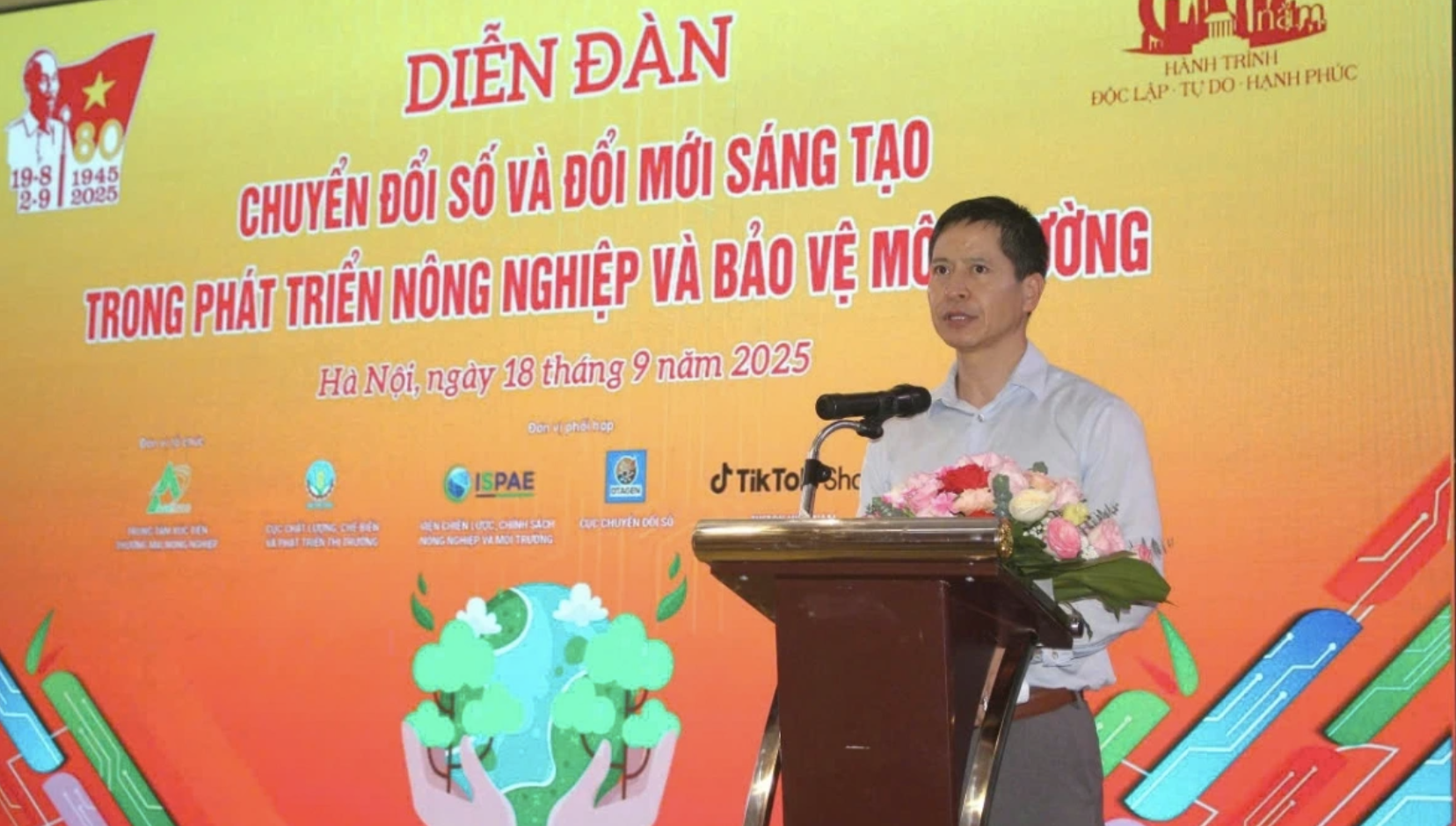 |
| Mr. Nguyen Minh Tien, Director of the Agricultural Trade Promotion Center. (Photo: VOV.VN) |
According to the Digital Transformation Department, the World Bank's 2021 report also pointed out that applying digital technology to agricultural production can help increase productivity by up to 30%, cut labor costs by 50% and reduce about 40% of irrigation water, pesticides and fertilizers. These are very significant benefits.
However, digital transformation still has many limitations, mainly taking place in large enterprises. Telecommunications infrastructure and equipment in rural areas are weak, human resources lack digital skills. Industry data is fragmented and lacks connectivity.
From a macro perspective, Mr. Pham Duy Khanh, Director of the Center for Rural Development (Institute of Agricultural and Environmental Policy Strategy) said that Vietnam's digital economy has great potential. Specifically, in 2024, the digital economy contributed more than 18% of GDP, growing three times faster than the general GDP rate. Retail e-commerce reached about 25 billion USD. This platform will create opportunities for agriculture to promote online trade, traceability, build brands and expand international markets.
Many digital transformation models have proven to be highly effective. In Binh Thuan, a cooperation project between the Ministry of Agriculture and Environment and UNDP from 2023 will help dragon fruit reduce carbon emissions by up to 68% and save 50% of energy thanks to the application of solar power, LED lights and traceability software. In Dong Thap, the Smart Village model allows monitoring of land, irrigation, cultivation, livestock, harvesting and processing using digital technology, thereby limiting losses, risks and improving production efficiency.
In Yen Hoa commune (Yen Mo district, Ninh Binh), all 10/10 villages have internet coverage, 70% of people use smartphones. OCOP products are sold on Postmart platform, QR payment is popular.
However, according to Mr. Pham Duy Khanh, a major challenge today is the “phase difference” between technology and practice. Technologists often do not fully understand the specifics of agriculture. Meanwhile, farmers lack digital skills, leading to many technology products not being suitable for production reality.
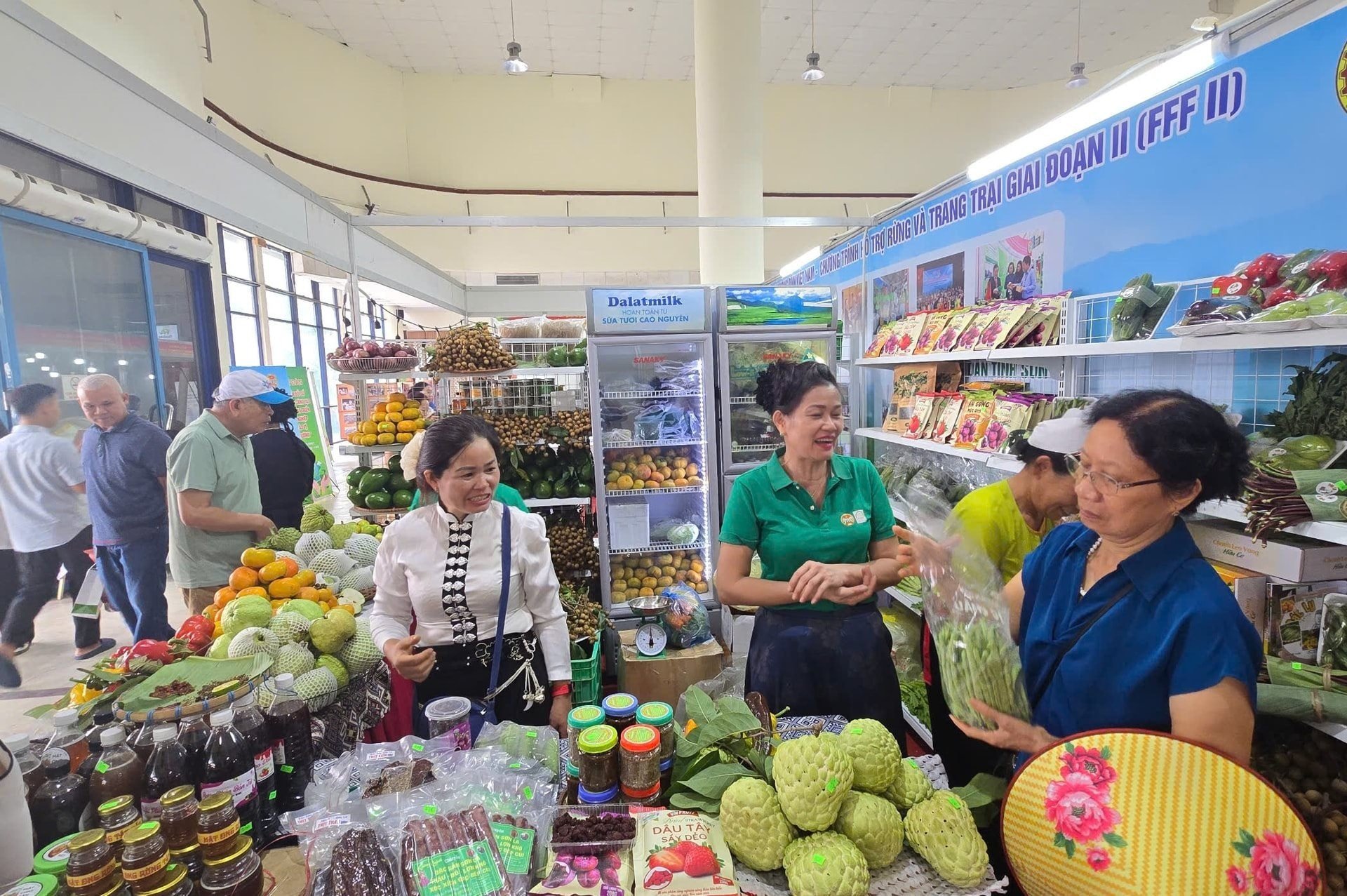 |
| Green, clean products are supported by the Forest and Farm Support Program. (Photo: moitruong.net.vn) |
To solve this problem, Mr. Khanh proposed building a national data bank on digital agriculture to ensure consistency and connectivity.
At the same time, it is necessary to raise awareness and train digital skills for farmers through pilot models and introduce successful examples so that people can experience them directly before replicating them.
Experts also emphasized that building a smart village must be based on three pillars: digital government, digital economy and digital society. Digital government with online public services and management of raw material area codes. Digital economy with putting products on e-commerce platforms and cashless payments. Digital society with health, education, cultural and rural environmental services provided through digital platforms. This is a comprehensive approach, connecting technology with life, thereby forming a sustainable digital rural ecosystem.
Mr. Nguyen Minh Tien also emphasized that if a digital trade promotion platform for agriculture and the environment is not built soon, Vietnam risks falling behind. Because the traditional trade promotion system is fragmented and lacks data and can no longer meet new requirements.
Source: https://thoidai.com.vn/chuyen-doi-so-nong-nghiep-loi-giai-cho-bai-toan-phat-trien-xanh-ben-vung-216410.html



![[Photo] General Secretary To Lam receives US Ambassador to Vietnam Marc Knapper](https://vphoto.vietnam.vn/thumb/1200x675/vietnam/resource/IMAGE/2025/9/29/c8fd0761aa184da7814aee57d87c49b3)
![[Photo] General Secretary To Lam chairs the meeting of the Central Steering Committee on preventing and combating corruption, waste and negativity](https://vphoto.vietnam.vn/thumb/1200x675/vietnam/resource/IMAGE/2025/9/29/fb2a8712315d4213a16322588c57b975)
![[Photo] General Secretary To Lam attends the ceremony to celebrate the 80th anniversary of the post and telecommunications sector and the 66th anniversary of the science and technology sector.](https://vphoto.vietnam.vn/thumb/1200x675/vietnam/resource/IMAGE/2025/9/29/8e86b39b8fe44121a2b14a031f4cef46)
![[Photo] Many streets in Hanoi were flooded due to the effects of storm Bualoi](https://vphoto.vietnam.vn/thumb/1200x675/vietnam/resource/IMAGE/2025/9/29/18b658aa0fa2495c927ade4bbe0096df)
![[Photo] National Assembly Chairman Tran Thanh Man chairs the 8th Conference of full-time National Assembly deputies](https://vphoto.vietnam.vn/thumb/1200x675/vietnam/resource/IMAGE/2025/9/29/2c21459bc38d44ffaacd679ab9a0477c)
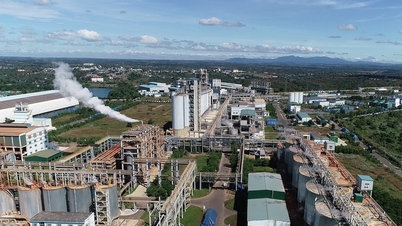





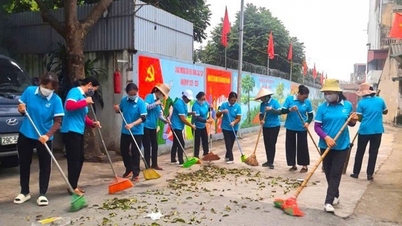


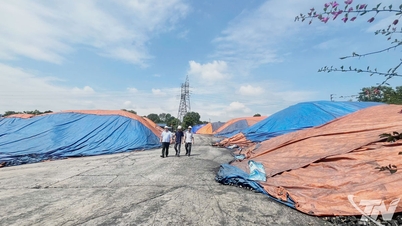



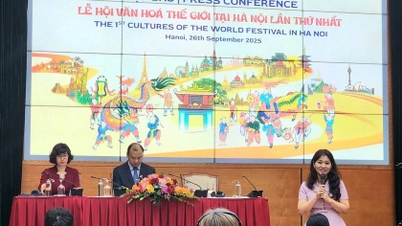
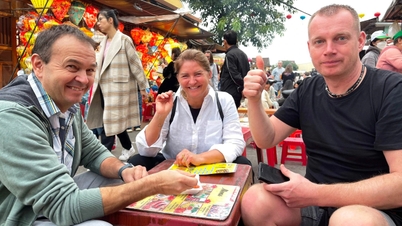
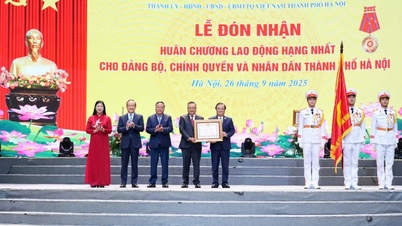






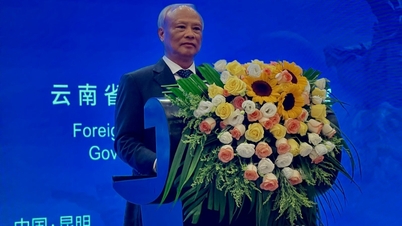



















































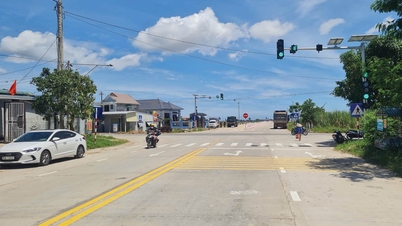



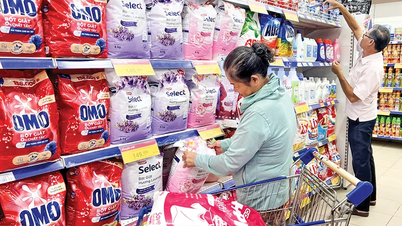















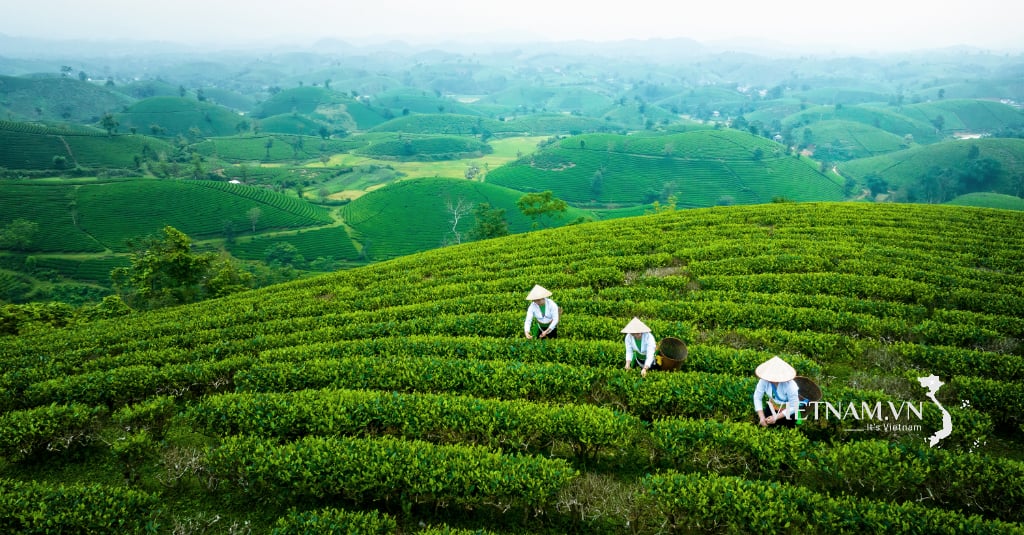


Comment (0)